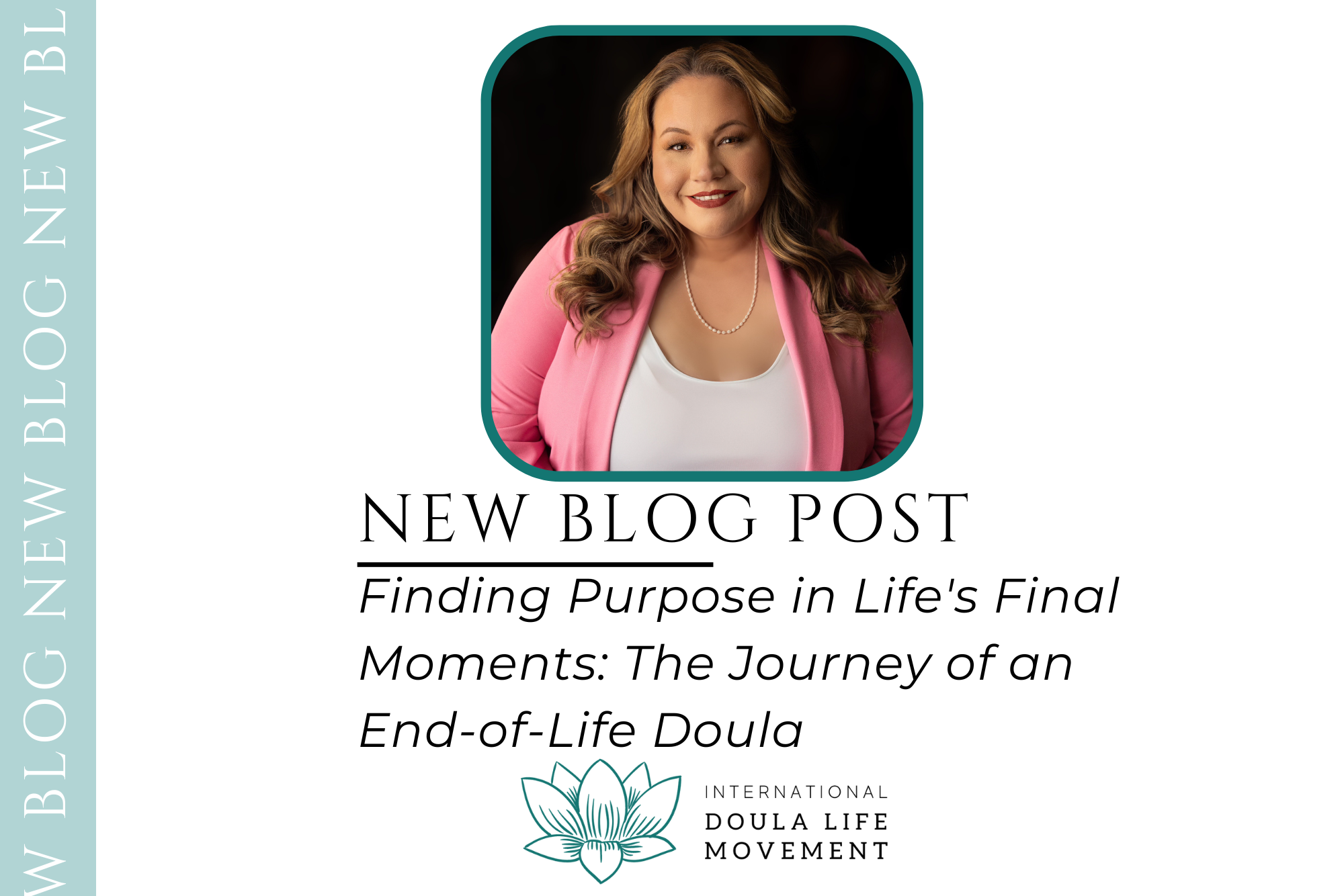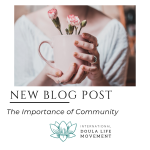At the age of 15, I began volunteering at a local hospital. A simple act of service helped me find my true calling in hospice. This early experience laid the foundation for what would become my life’s work, caring for individuals in their final stages of life, a journey that led me into hospice care and eventually to becoming an End-of-Life Doula and CEO and Founder of the International Doula Life Movement.
Throughout my career in hospice, I worked in both crisis care and in-patient units. Over time, I noticed a shift in hospice’s approach; as it became more medically focused, it began to lose sight of its original, holistic mission, supporting the emotional, spiritual, and physical needs of those at the end of life. This realization drove me to research how I could offer more comprehensive support to those I cared for, and that’s when I discovered the world of end-of-life doulas.
Realizing this role was a natural extension of my work, I sought out programs to formalize my training. However, the costs were staggering. As a mother of four children, living paycheck to paycheck, I wasn’t sure how I could afford the nearly $3000 price tag for a certification program. Nonetheless, I took a leap of faith and invested in the training, only to be met with disappointment. While the program connected me with others in the field, it did not provide the depth of education, confidence, or community I had hoped for.
Determined to change this, I conducted a research project, interviewing 30 doulas from around the world. Through these conversations, it became clear that our industry faced major issues: costly programs, a lack of adequate support, and insufficient education. I realized that I had the potential to make a difference. Shortly after this realization, the International Doula Life Movement (IDLM) was born.
Building a Movement to Support Doulas Worldwide
In our first year, IDLM offered a 12-week course, followed by a 14-week course in the second year, and then a 16-week course in the third year. Today, we offer a comprehensive 28-module training program that spans over 80 hours and we are expanding next year. Our first-class launched in January 2021 with 49 students from around the globe. Since then, we’ve graduated over 1,200 doulas, both nationally and internationally.
What sets IDLM apart is more than just our curriculum. We create a supportive, nurturing community for doulas, ensuring they never feel alone on their journey. Our students receive personalized support, including direct access to both myself and the program director. Unlike other programs that may feel impersonal, we believe in building relationships with our students, and continuing to support them even after they’ve graduated.
Overcoming the Challenges
Looking back, the road hasn’t always been smooth. One of the biggest challenges I’ve faced is meeting the demand for doulas. As the need for end-of-life care continues to grow, there aren’t enough doulas to help all the families seeking this support. But I believe that through IDLM’s training and community, we can continue to work to this demand and ensure that no family faces end-of-life care without the compassionate, informed support they deserve.
What Sets IDLM Apart
In addition to founding and teaching at IDLM, I maintain a private practice as an End-of-Life Doula. I work with three local hospices—Caring Hands Hospice, Holistic Hospice and Passion Hospice—providing support to families and educating communities about the importance of end-of-life preplanning. This holistic approach allows me to serve families in meaningful ways, helping them navigate significant life transitions and empowering them to give their loved ones the best gifts in their final moments.
Advice for Aspiring Doulas
For those just starting their journey, my advice is simple: research, ask questions, and trust your instincts. When looking into end-of-life doula programs, find out how accessible the founders are and how responsive the organization is. At IDLM, I personally speak with students and provide them with my contact number. This personal connection is crucial because doulas need a strong support system to succeed.
If you’re considering a career as an End-of-Life Doula, remember that this work is more than a job—it’s a calling. It’s about being there for others during life’s most vulnerable moments and offering them comfort, care, and dignity as they approach the end.
At the International Doula Life Movement (IDLM), we believe that training should be affordable and accessible to everyone who feels called to this important work. We never turn away a person who is passionate about becoming a doula, which is why we offer scholarships and flexible payment plans to meet the financial needs of our students. For me, it’s more important to know that the doulas we train are properly educated and fully supported, rather than seeing finances become a barrier. This commitment ensures that each doula is well-prepared to make a meaningful impact in the lives of the families they serve.
We are proud to have achieved a balance of affordability and comprehensiveness in our education program while creating the IDLM ecosystem for our doulas to thrive after graduation.
By sharing my journey and the evolution of the International Doula Life Movement, I hope to inspire others to see the profound impact this work can have. The road may not always be easy, but the reward of helping individuals and families during such a critical time makes every challenge worthwhile.






